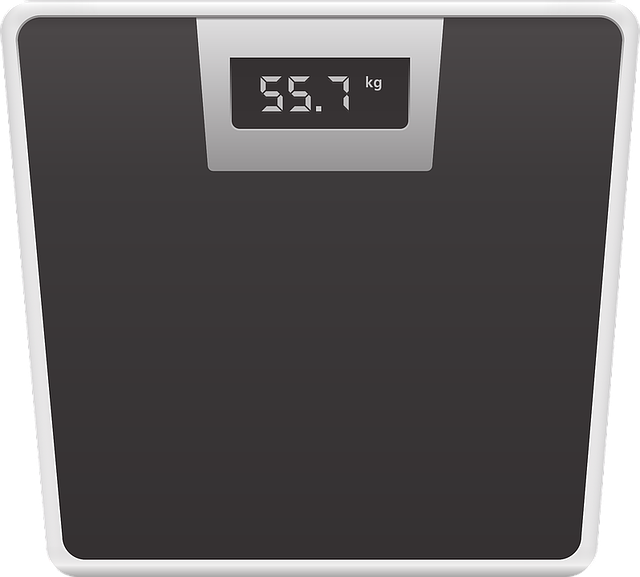Doctor-supervised weight loss programs offer personalized, safe, and effective care through tailored meal plans, expert guidance, and regular health tracking. These structured plans consider medical history, goals, and lifestyle, empowering participants with tools for lasting weight loss and improved health. Key metrics like body measurements, diet adherence, and physical activity are tracked to evaluate progress and adjust interventions. Digital tools enhance data collection and patient engagement. Continuous support through check-ins, education, and peer groups helps overcome challenges and promotes sustainable results.
In the pursuit of optimal health, doctor-supervised weight loss programs have emerged as a structured approach to medical weight management. This article delves into the transformative power of these programs, highlighting the crucial role of health improvement tracking in their success. From understanding the fundamentals to implementing effective tracking systems and addressing compliance challenges, we explore strategies that enhance patient outcomes. Key metrics are examined, along with personalized care techniques, offering a comprehensive overview for healthcare professionals navigating doctor-supervised weight loss programs.
Understanding Doctor-Supervised Weight Loss Programs: A Comprehensive Overview

Doctor-supervised weight loss programs are designed and managed by healthcare professionals, typically doctors or dietitians, to ensure safe and effective weight management. These programs offer a structured approach, focusing on individual needs, medical history, and overall health goals. Unlike unsupervised or self-directed plans, doctor-supervised programs prioritize personalized care, monitoring progress, and providing expert guidance throughout the journey. Participants benefit from regular check-ins, tailored meal plans, and access to specialized knowledge aimed at addressing specific health challenges related to weight loss.
Through these comprehensive programs, individuals gain insights into sustainable eating habits, portion control, and lifestyle modifications. Medical supervision ensures a safe environment, where potential risks are mitigated, and progress is accurately tracked. This structured framework empowers participants with the tools and support needed to make lasting changes, ultimately leading to successful and healthy weight loss.
The Role of Health Improvement Tracking in Medical Weight Management

In medical weight loss programs, health improvement tracking plays a pivotal role in ensuring safe and effective results. Doctor-supervised weight loss programs understand that simply monitoring calorie intake and exercise isn’t enough to achieve lasting health improvements. By meticulously tracking various health markers, these programs can tailor interventions to address individual needs. This proactive approach helps in identifying potential risks early on, such as changes in blood pressure, cholesterol levels, or blood sugar, enabling prompt intervention.
Moreover, regular health improvement tracking allows doctors to assess the overall progress of participants beyond just weight loss. It provides insights into metabolic rates, body composition changes, and improvements in conditions like diabetes or hypertension. This comprehensive view facilitates personalized guidance, nutrition plans, and exercise routines that promote not only weight management but also long-term wellness and a reduced risk of chronic diseases.
Key Metrics for Monitoring Progress and Success in These Programs

In doctor-supervised weight loss programs, monitoring progress and success relies on key metrics that provide a comprehensive view of an individual’s health improvement journey. These include tracking changes in body weight, body mass index (BMI), and waist circumference. Regular measurements of blood pressure, cholesterol levels, and blood sugar are also crucial to assess cardiovascular health and metabolic conditions. Additionally, tracking dietary intake and physical activity levels helps tailor interventions for better results.
Other important metrics involve evaluating patient satisfaction, adherence to the program, and changes in body composition through measures like body fat percentage and muscle mass. These indicators collectively help healthcare professionals gauge not just weight loss but also overall health improvement, enabling them to make informed adjustments to the treatment plan for optimal success in these programs.
Implementing Effective Tracking Systems for Optimal Patient Outcomes

Implementing effective tracking systems is paramount in doctor-supervised weight loss programs to ensure optimal patient outcomes. These systems allow healthcare professionals to monitor patients’ progress, identify trends, and make data-driven decisions. By capturing key metrics such as weight, body measurements, diet adherence, and physical activity levels, doctors can tailor interventions and adjust treatment plans accordingly. This personalized approach enhances engagement and improves compliance, leading to better results for each patient.
Moreover, robust tracking systems enable before-and-after comparisons, facilitating the evaluation of program effectiveness. They also facilitate communication between patients and their healthcare teams, fostering a collaborative environment that supports motivation and accountability. In today’s digital era, many innovative solutions offer seamless data collection through mobile apps or online platforms, providing real-time insights and enhancing patient-doctor interactions in doctor-supervised weight loss programs.
Overcoming Challenges in Data Collection and Patient Compliance

Overcoming Challenges in Data Collection and Patient Compliance is a critical aspect of successful doctor-supervised weight loss programs. One of the primary hurdles is ensuring accurate and consistent data collection from participants. Many patients struggle with self-reporting, often underestimating their food intake or overstating physical activity levels. To mitigate this, medical professionals should employ technology like wearable devices and smartphone apps that track calories burned and macronutrient intake. Regular feedback sessions can also help patients understand the importance of honest data input.
Another significant challenge is maintaining patient compliance throughout the program. High dropout rates are common in weight loss initiatives due to lack of motivation or perceived difficulty. Medical teams must offer personalized support, setting realistic goals and celebrating small wins to keep patients engaged. Regular check-ins, educational resources, and a supportive community can foster adherence and help participants stay on track despite obstacles.
Strategies for Personalized Care and Continuous Support in Medical Weight Loss

In doctor-supervised weight loss programs, personalized care and continuous support are key strategies for achieving sustainable results. Each individual has unique needs, preferences, and challenges when it comes to health improvement and weight management. Therefore, a tailored approach is essential. Healthcare professionals should assess not only physical aspects but also mental health, lifestyle, and environmental factors that influence an individual’s journey towards a healthier life. This involves regular check-ins, where patients can discuss their progress, setbacks, and goals with their doctors, ensuring ongoing guidance and motivation.
By offering continuous support, these programs create an environment conducive to long-term success. This includes providing educational resources, like nutrition workshops or exercise demonstrations, to empower participants with the knowledge to make informed choices. Additionally, peer support groups or one-on-one counseling sessions can foster a sense of community and accountability, addressing emotional eating or other behavioral barriers commonly associated with weight loss.
